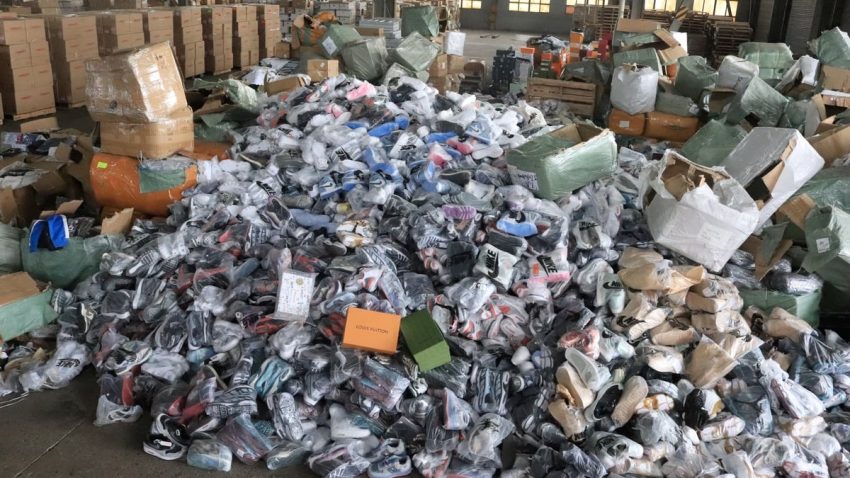Chinese e-commerce marketplace Temu says it takes intellectual property rights seriously after reports that merchants were listing counterfeit products in South Africa.
These included merchandise from local sports teams like the Springboks and Blue Bulls, as well as Le Creuset–branded cookware.
MyBroadband contacted the organisations with photographs of the items, and they either confirmed that the item was fake or that their authorised resellers were not selling through Temu.
After receiving feedback from the Blue Bulls, Le Creuset, and SA Rugby, MyBroadband contacted Temu for comment about vendors selling counterfeit goods on its platform.
Temu initially requested links to the individual offending listings. MyBroadband instead provided screenshots of the results when searching for “Springboks” and “Blue Bulls” on Temu.
Shortly thereafter, searches for “Blue Bulls”, “Springboks”, and “Le Creuset” began returning no results.
“Thank you for bringing this matter to our attention. Upon receiving your email, we conducted an internal review and promptly removed the items in question,” a Temu spokesperson told MyBroadband.
“We’ve also added these brands to our IP database to help us monitor for future issues.”
Temu said it safeguards thousands of brands through a combination of automated detection and manual review.
“We welcome rights holders to register their brand assets with us to enhance screening and to submit takedown requests through our IP protection portal.”
Temu said its policies prohibit IP infringement, which it enforces by removing listings, suspending listing privileges, and in some cases, terminating seller accounts.
“As a member of the International AntiCounterfeiting Coalition and its Marketplace Advisory Council, Temu supports broader industry efforts to fight the sale of counterfeit goods online,” Temu said.
Temu is a marketplace allowing third-party merchants to sell their goods worldwide. It does not directly sell the items.
Other platforms offering third-party marketplaces like Amazon and Takealot have also faced challenges dealing with counterfeit goods.
However, one significant difference is that Temu provides a more direct channel from the buyer to the factories that produce the knock-off and counterfeit products.
Temu’s intervention of disabling certain searches is also a blunt, imperfect instrument. Searching for “Sharks rugby” and “Bulls rugby” still returns products misusing the teams’ logos.
Prior to publishing our article on Tuesday, “Stormers rugby” also yielded listings for unauthorised products. Those listings appear to have been removed, while the search term remains uncensored.
Crackdown on counterfeit goods in South Africa



The South African Police Service (SAPS) has been cracking down on counterfeit goods, conducting multiple raids on warehouses and retailers in recent months.
On 27 May 2025, police in KwaZulu-Natal discovered counterfeit goods with an estimated street value of R400 million at a freight depot at Edwin Swales, south of Durban.
Police were doing a routine cargo profiling when they found two containers which contained counterfeit designer clothes, jewellery and kitchenware. Counterfeit Le Creuset products were among the confiscated items.
According to the police, both containers were fraudulently declared to be carrying furniture. Preliminary investigations have found that the containers entered the country from Asia.
The cargo was destined for Alberton and central Johannesburg. SAPS said Investigations were underway to uncover the suspects responsible for importing the counterfeit goods into the country.
While counterfeits sold through well-known marketplaces were one concern, Le Creuset South Africa CEO Ben Paine has warned that scammers use respected brands to defraud people through too-good-to-be-true deals.
Paine said scammers often create professional-looking websites that mimic the official Le Creuset site or authorised retailers.
These sites advertise massive discounts — sometimes up to 80% off. Once payment is made, customers either receive counterfeit products or nothing at all.
“Online marketplaces like Facebook Marketplace, Instagram, or even lesser-known e-commerce platforms may list Le Creuset items at suspiciously low prices,” said Paine.
“These are often counterfeit products that mimic the look but lack the quality and durability of genuine Le Creuset cookware.”
Paine said customers should always verify the seller’s reputation and reviews before making a purchase. “If the price seems too good to be true, it probably is,” he cautioned.
Search for “Blue Bulls” on Temu — before and after


Search for “Bulls rugby” and “Sharks rugby” on Temu


Search for “Stormers rugby” on Temu — Before and after



